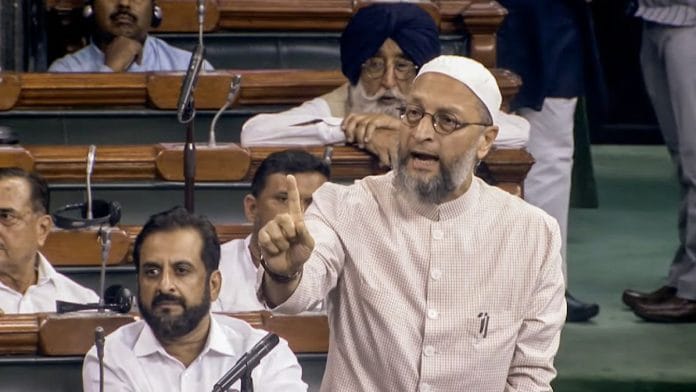New Delhi: AIMIM president Asaduddin Owaisi Tuesday said that his party would oppose the Women’s Reservation Bill introduced by the Modi government in the Lok Sabha due to its lack of provisions for a sub-quota for Other Backward Classes (OBC) and Muslim women.
Speaking to the media after the Lok Sabha adjourned, Owaisi expressed, “You are making this law for representation of people who do not have representation. All 17 Lok Sabha elections in India, have elected 8992 MPs, out of which muslims are only 520. Within that 520, there are barely a handful of muslim women.”
Questioning the government’s decision, the All India Majlis-E-Ittehadul Muslimeen (AIMIM) chief asked, “Who are you giving representation to?” He highlighted the “major flaw” in the bill is the absence of a quota for Muslim and OBC women, and stated, “That’s why we are against it.”
#WATCH | Delhi: On Women's Reservation Bill, AIMIM Chief Asaduddin Owaisi says, "…Who are you giving representation to? Those who don't have representation should be given representation. The major flaw in this bill is that there is no quota for Muslim women and so we are… pic.twitter.com/LIrU5RJiaQ
— ANI (@ANI) September 19, 2023
On Tuesday, following the relocation of the parliament to a new building, Law Minister Arjun Meghwal introduced the Women’s Reservation Bill, known as ‘Nari Shakti Vandan Adhiniyam,’ in the Lok Sabha. The bill aims to allocate one-third of the seats in Lok Sabha and state assemblies for women. Additionally, it proposes reserving one-third of the total seats designated for SCs and STs for women belonging to these communities.
Speaking about the bill in his first speech at the parliament, Prime Minister Narendra Modi said he had been chosen by God to accord “women their rights and to harness their true power”.
“We approved this Bill in the Cabinet yesterday. The day 19 September will be remembered in history because of this Bill,” Modi added.
While many opposition parties have previously expressed their support for women’s reservation, they have raised concerns about the implementation of the proposed bill. The legislation suggests that the reservation for women will be implemented after a delimitation exercise, based on the figures of the first census undertaken post the bill receiving parliamentary assent, is conducted. This would exempt 2024 Lok Sabha elections from being part of the new legislation.
Also read: Modi’s Women’s Reservation Bill has an OBC-sized oversight. Undermines inclusivity, fairness






